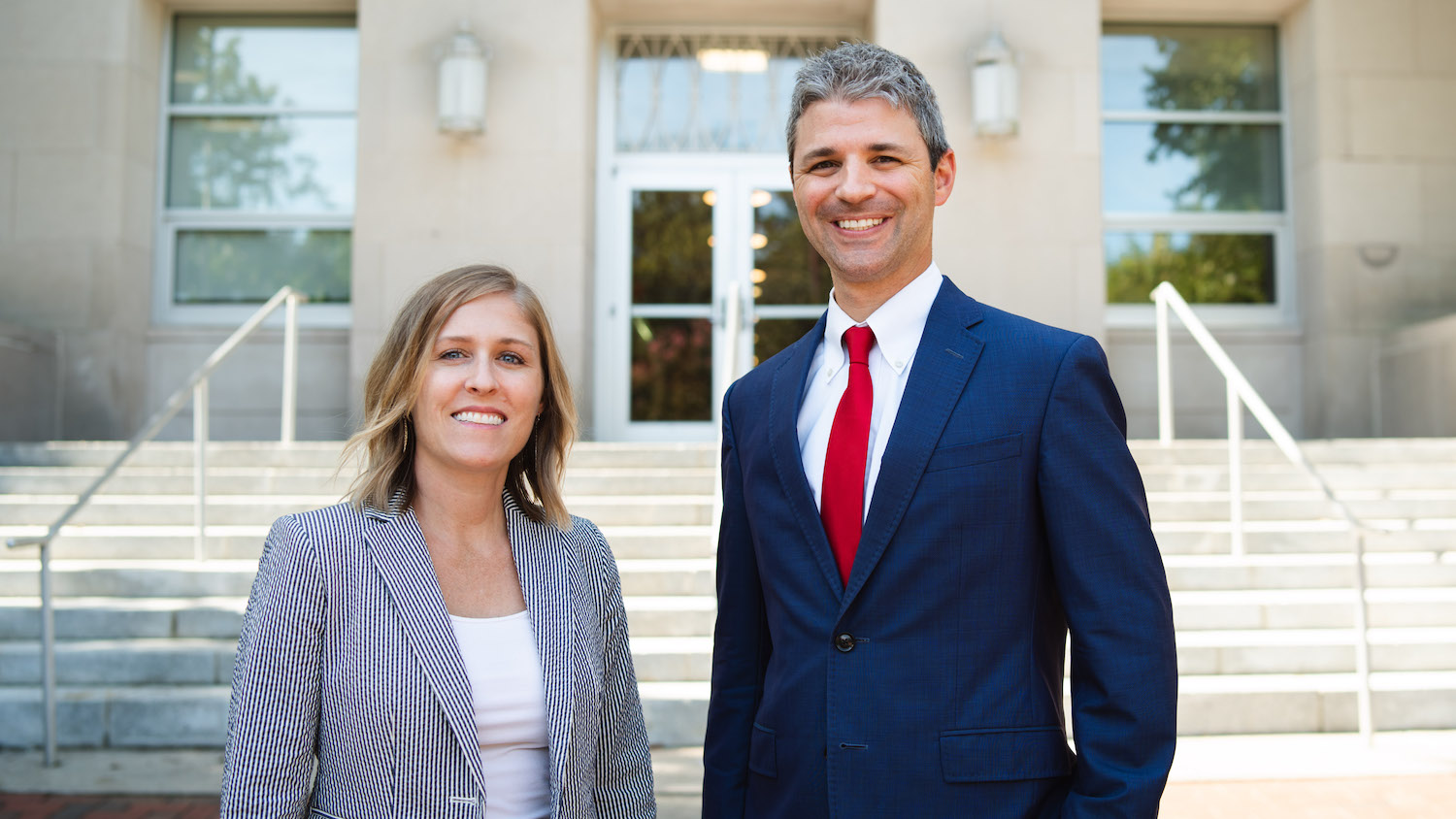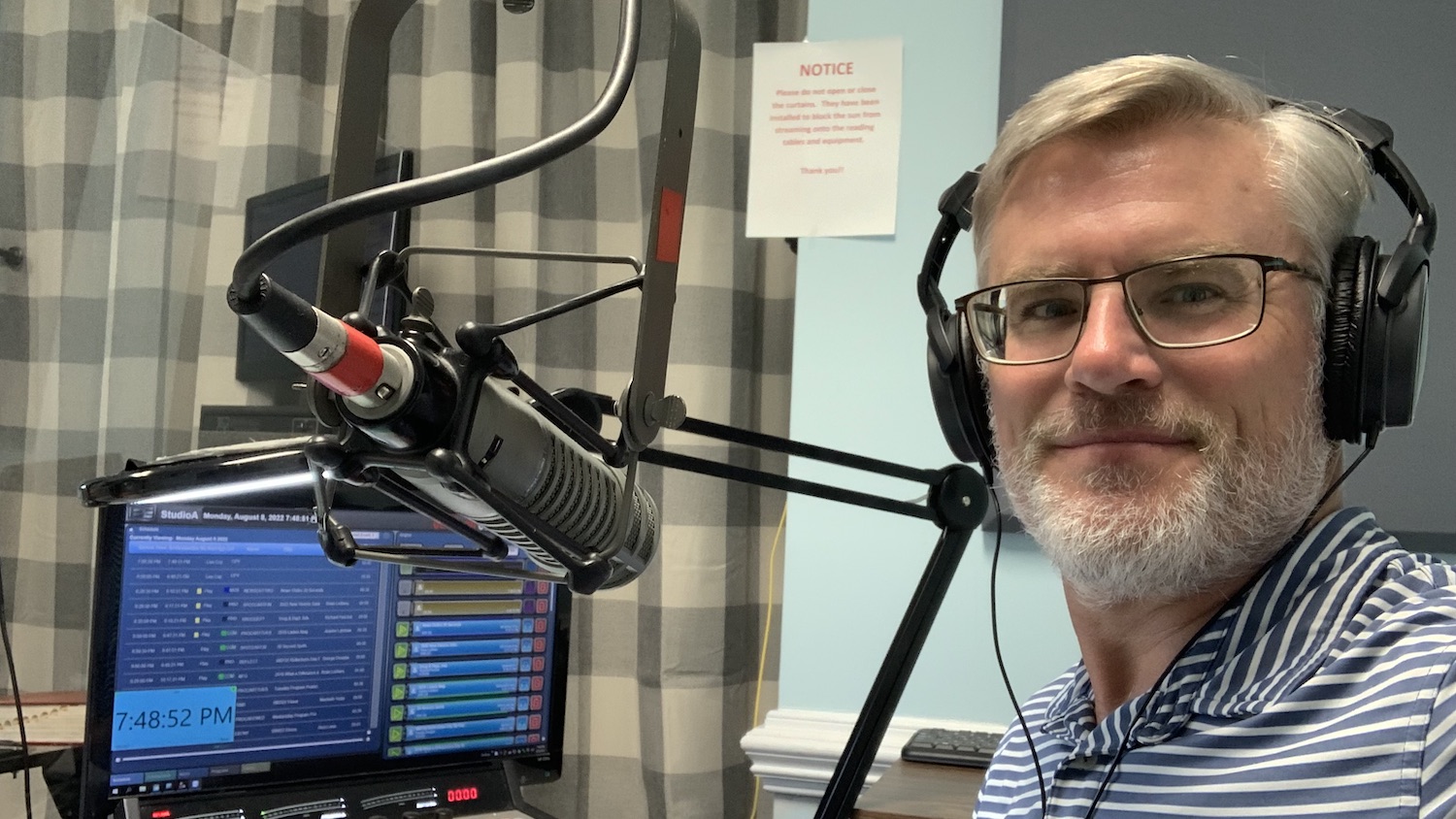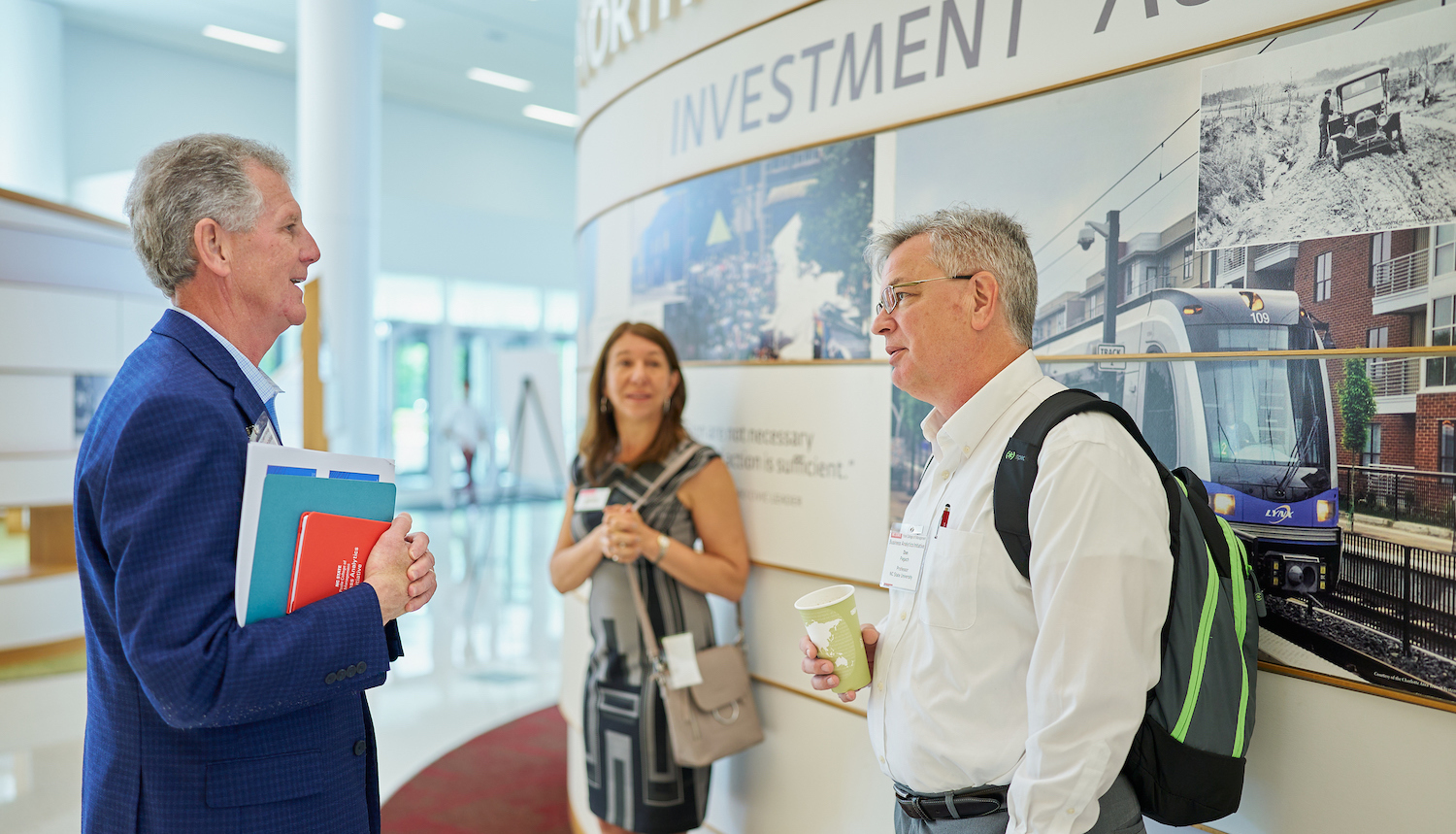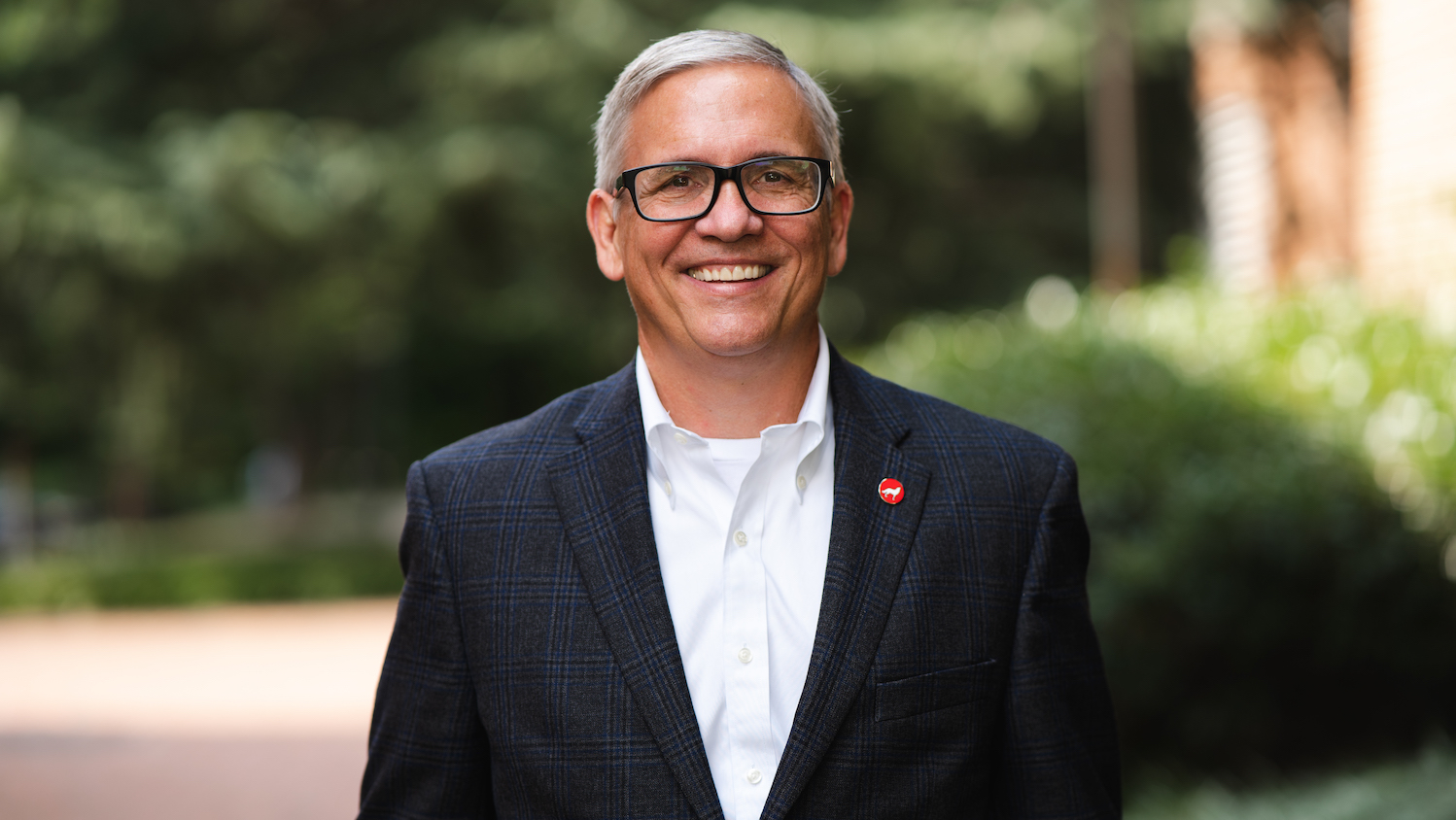Economic Food for Thought
Professors Nathan Goldman and Christina Lewellen break down complicated economic topics, such as taxes and cryptocurrency, into easily digestible pieces in their online thought pieces.

How does bitcoin work, and what do you need to know if you use it? What is the global minimum tax rate, and why does it matter? And what exactly went on between Disney and the state of Florida with regard to the company’s tax situation?
Those are the kinds of questions Nathan Goldman and Christina Lewellen answer. In their online thought pieces, the two accounting professors strive to break down complicated topics concerning the economy and taxes in a way the public can understand.
These thought pieces are among the most popular content on Poole College’s website and social media accounts. The one about Florida stripping Walt Disney Co. of its special economic enhancement status racked up hundreds of comments on Facebook and reached tens of thousands of people.
“We’ve really enjoyed doing it. The feedback has been really good,” Lewellen says. “It helps bridge the gap between academics and the public. A lot of the academic research that we do doesn’t get read by regular people; it’s mostly read by other professors or Ph.D. students. This is just a really good opportunity for us to get the information out.”
A Partnership
Lewellen and Goldman have written seven thought pieces, three of them together and four separately, since July 2021. When they collaborate, one of them takes the lead on the writing and the other edits and makes additions. Their skills complement each other; Lewellen calls Goldman “the idea guy” who is “really good at finding hot topics and saying, ‘Hey, we can tell people about that so they can understand what’s going on.’ ”
Meanwhile, Goldman describes Lewellen as more detail-oriented. “She’s better at really researching a specific item to ensure it’s coming across cleanly, or if there’s a caveat or we need to rephrase something,” he says. “She’s really good at ensuring things come across as unbiased and clean for the reader.”
The two sometimes must do their own research before they write. Goldman says he enjoyed learning about Disney’s incentive package, which helped him understand the incentive packages North Carolina has used in the past year to attract big businesses, including Apple. Lewellen says July’s piece on bitcoin was her favorite to work on because she learned about the technical aspects of cryptocurrency in addition to the tax aspects. Goldman says he hunts for original documents when researching changes to taxation, whether they take place at the state level or the global level, such as when 136 countries agreed in October to implement a global minimum tax rate of 15%. If those are too dense — they can run to hundreds of pages — he looks for summaries from trustworthy sources.
The most important goal is to ensure each piece is approachable for an audience that lacks Goldman and Lewellen’s expertise or a business background in general. Pieces need to be easy to understand but not so simple that they are meaningless. Paradoxically, it’s better to leave out numbers when writing about taxes, Goldman says, because sometimes readers fixate on dollar figures instead of looking at the bigger picture.
“Everything in taxes is super complicated usually, but we take a simple approach and say, ‘OK, here’s an example of how this might work,’ and walk people through an example and try to stick to the high points rather than get into all the minute details.”
Lewellen agrees that getting too specific can be a problem. “Everything in taxes is super complicated usually, but we take a simple approach and say, ‘OK, here’s an example of how this might work,’ and walk people through an example and try to stick to the high points rather than get into all the minute details,” she says.
A Balancing Act
Taxes and politics are often intertwined, but Goldman and Lewellen do their best to talk about the former while avoiding the latter.
“I think it’s really important that we don’t impart our beliefs into these articles,” Goldman says. “We understand there are two sides to everything, and we do our best to say why both sides are correct or both sides have an argument. It’s not to say one is better than the other.”
Their most popular thought piece last fiscal year came with an unavoidable political angle: Florida Gov. Ron DeSantis’ decision in April to strip Walt Disney Co. of its special economic enhancement status after the company spoke out against state legislation. That piece, which examined how the move would redistribute the state’s tax burden, received a lot of attention on Facebook, garnering 451 clicks and 373 comments, and reaching almost 22,000 people.
Goldman and Lewellen’s writing and editing system keeps their pieces neutral, since they can check each other for biases.
“It’s hard to see things outside of your own perspective sometimes, and I think especially with tax issues that can really pop up,” Goldman says.
The point of the thought pieces is to provide information so readers can see the complete picture of an issue and come away with a well-rounded view. That means talking about all the potential outcomes and consequences, not what should happen, or even asserting what will happen.
“You can’t predict the future; there’s no crystal ball,” Lewellen says. “In my mind, it is unlikely that cryptocurrency is going to take over and be a primary form of currency, but you don’t know that for sure — things could change, and then it could be. So you can’t go out and say that when there’s no sure basis; it’s your opinion. We try to make everything very fact-based: Here are the facts, here are the issues, here’s why cryptocurrency might not be viable as a future currency — but here are the reasons why it might. We try to present both sides of that, even if we have a strong opinion one way or the other.”
No Shortage of Ideas
Goldman and Lewellen see no shortage of ideas for thought pieces. Politics and the economy influence tax codes, ushering in complications, loopholes and small changes that can have big impacts. If taxes appear on the front page of The Wall Street Journal, Goldman says, he starts thinking about a potential thought piece.
There are other topics outside the news they would like to write about as well. Lewellen is researching international tax provisions, and Goldman is interested in how taxes can curb income inequality. Ultimately, however, they are ready to talk about anything tax-related that pops up and grabs the public’s attention.
“At NC State, we’re all about not just coming up with unique knowledge and skill sets, but how can we apply them? How can we make them practical for the general public?”
The thought pieces set NC State apart from other universities, Goldman says. “At NC State, we’re all about not just coming up with unique knowledge and skill sets, but how can we apply them? How can we make them practical for the general public?”
Lewellen encourages all Poole College faculty to write thought pieces and share their expertise with the world.
“As professors, part of our job is thought leadership, information dissemination and research,” she says. “I think it’s valuable to be able to do that. That’s how we show that our research and knowledge are valuable, not just to our students but to external audiences. Part of our job is educating them as well.”
- Categories:





